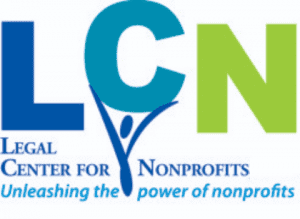As we saw in our last post, the names of a new nonprofit’s board members need to be included in the formation documents you submit for incorporation. But finding these founding board members is often challenging. What are the most important considerations in choosing initial board members?
Sometimes the dialogue goes like this:
Founder: “Jane, I’m starting a nonprofit that will serve the homeless, and I’d love to have you on the board.”
Jane: “What a great idea, but I’m so busy, and I’ve never been on a board—what’s involved?”
Founder: “Oh not too much—just a monthly meeting for an hour or so.”
WRONG.
Here are the right things to talk to your prospective board members about:
- Commitment is the fundamental expectation. Your prospective board member must be willing to commit to fully supporting the nonprofit—not merely by showing up for a one-hour monthly board meeting and providing an annual financial gift (although these are essential, of course), but to be there for the nonprofit throughout the year, actively participating in board meetings, committee meetings, and special meetings and events, always fully prepared and ready to work. Founders often seek politicians and well-known community leaders, and these folks can be great supporters—but can they commit the time needed to the nonprofit? Probably not.
- Board members must bring something to the table. Founders should seek board members who bring: (1) skills (decision-making, project management, or an analytical mind, for example), functional knowledge or subject matter expertise (e.g., finance, fundraising, etc.), and experience (in the nonprofit’s field, for example, or with nonprofits generally); (2) connections and networks, and a willingness to exploit these to advance the nonprofit in its work and fundraising; and (3) energy and motivation to get the nonprofit moving forward in its mission.
- Emphasize independence. Independence of directors takes two forms: (1) “independence of action,” meaning the director is unlikely to bring “baggage” in the form of conflicts of interest or potential conflicts; and (2) “independence of thought,” meaning the director is willing to think critically and analytically about any issue brought to the board without looking to see how others are voting or automatically siding with any other board member (as may happen when married couples serve on the same board).
If you as the founder can find a few people who meet these criteria, you will be on your way to building a strong and effective nonprofit board of directors.
The foregoing is provided for information and educational purposes only and does not constitute legal advice. Consult an attorney or accountant for advice regarding your organization’s specific situation.
